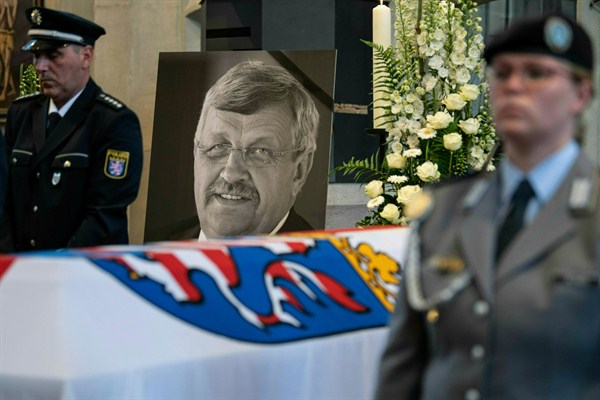BERLIN—When Walter Luebcke, the president of a regional council in the central German state of Hesse, was found lying on his porch with a bullet wound to his head in early June, investigators initially resisted the notion that the shooting was connected to his work as a politician. Luebcke had spent the evening sitting outside, within earshot of a festival taking place in his hometown of Istha that night. His son found him, after returning home from the festival, and called the paramedics. Luebcke died in the hospital a few hours later.
For years, Luebcke had been the target of abuse by far-right groups because of his defense of Chancellor Angela Merkel’s pro-refugee policy that ushered about 900,000 migrants and refugees into Germany in 2015. In a recorded speech that later went viral, Luebcke had at one point suggested that people who did not support the policy should leave Germany themselves. Still, the idea that he might be killed for those views seemed hard for many Germans, including the police, to accept.
That Luebcke’s killing was a political assassination soon became inescapable, however. The man police finally arrested nearly two weeks later, Stephan Ernst, had deep ties to neo-Nazi and other extremist organizations. The 45-year-old Ernst quickly confessed to the killing, acknowledging that he had targeted Luebcke for his stance on refugees.

